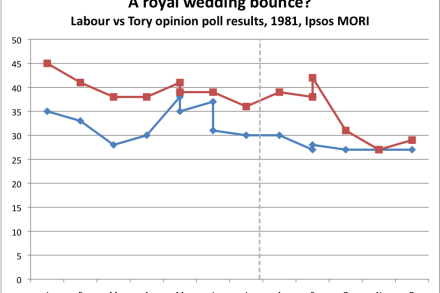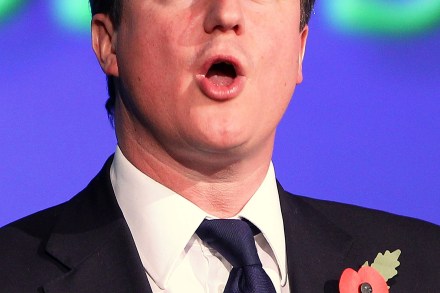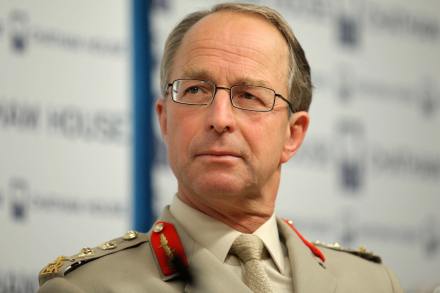A royal wedding bounce?
Slap all kinds of health warnings on this, but – in view of speculation that the Wills and Kate nuptials might work in the coalition’s favour – I thought CoffeeHousers might like to see what happened to the the Tory government’s poll rating in 1981, around when Prince Charles married Diana. So here’s a graph I’ve put together from Ipsos MORI’s figures. The dotted line represents the date of the wedding: PoliticsHome suggests that the “royal wedding worked wonders for Thatcher” – but, on the basis of the above, I’m not so sure. It’s worth nothing, though, that the Tories surged ahead of Labour as soon as the Falklands War




















